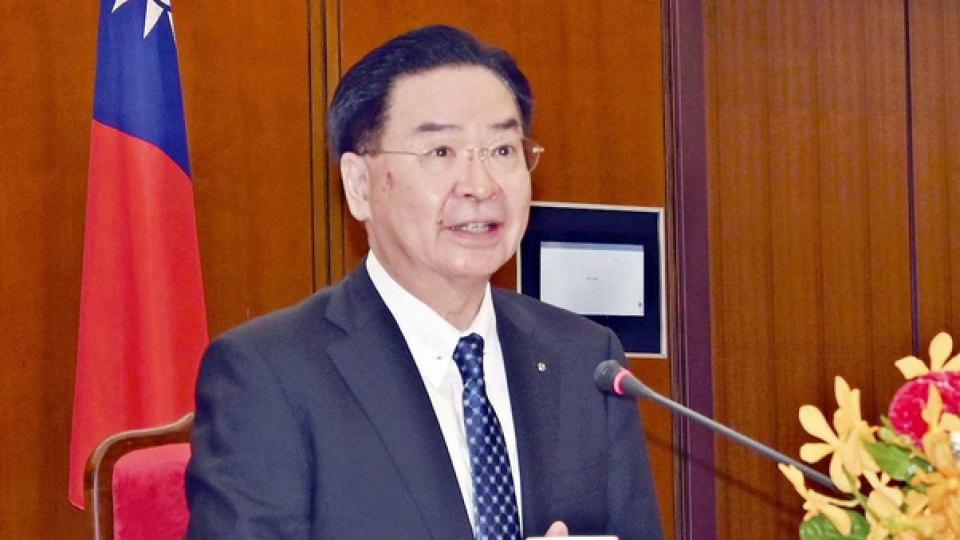April 24, 2024
TOKYO – Taiwan Foreign Minister Joseph Wu praised the progress of security cooperation among Japan, the United States and the Philippines, and expressed hope for stronger cooperation to counter China’s aggressive maritime expansion in the East and South China Seas in an April 17 interview with The Yomiuri Shimbun and other media. During the interview at Taiwan’s Foreign Ministry in Taipei, Wu welcomed the agreement among Japanese Prime Minister Fumio Kishida, U.S. President Joe Biden and Philippine President Ferdinand Marcos Jr. to promote maritime security cooperation, among other things, with China’s increasing maritime expansion in mind during their first trilateral meeting on April 11.
Wu called the agreement “a very new security architecture.”
In reference to Chinese government vessels ramping up their activities around the Senkaku Islands in Okinawa Prefecture and in waters near the Philippines, Wu said, “China is not targeting Taiwan alone.”
“When they understand the threat of Chinese expansionism, there’ll be more countries joining together to ensure a free and open Indo-Pacific and also peace and stability over the Taiwan Strait,” Wu said.
Regarding information warfare through disinformation, Wu stressed that there is a danger that China is trying to control public opinion in Japan to create a situation favorable to itself. “They want to continue to tell the people in Japan that militarization, that deployment in southwest islands, the U.S. military presence in the region, military exercises with the United States, things like that are provocative, and are likely to draw Chinese military reactions. Those kinds of narratives are being fabricated by the Chinese,” he said.
Wu, Taiwan’s foreign affairs chief since February 2018, is to become secretary general of the National Security Council, which oversees security policy, in the new government to be formed in May by President-elect Lai Ching-te of Taiwan’s ruling Democratic Progressive Party.

